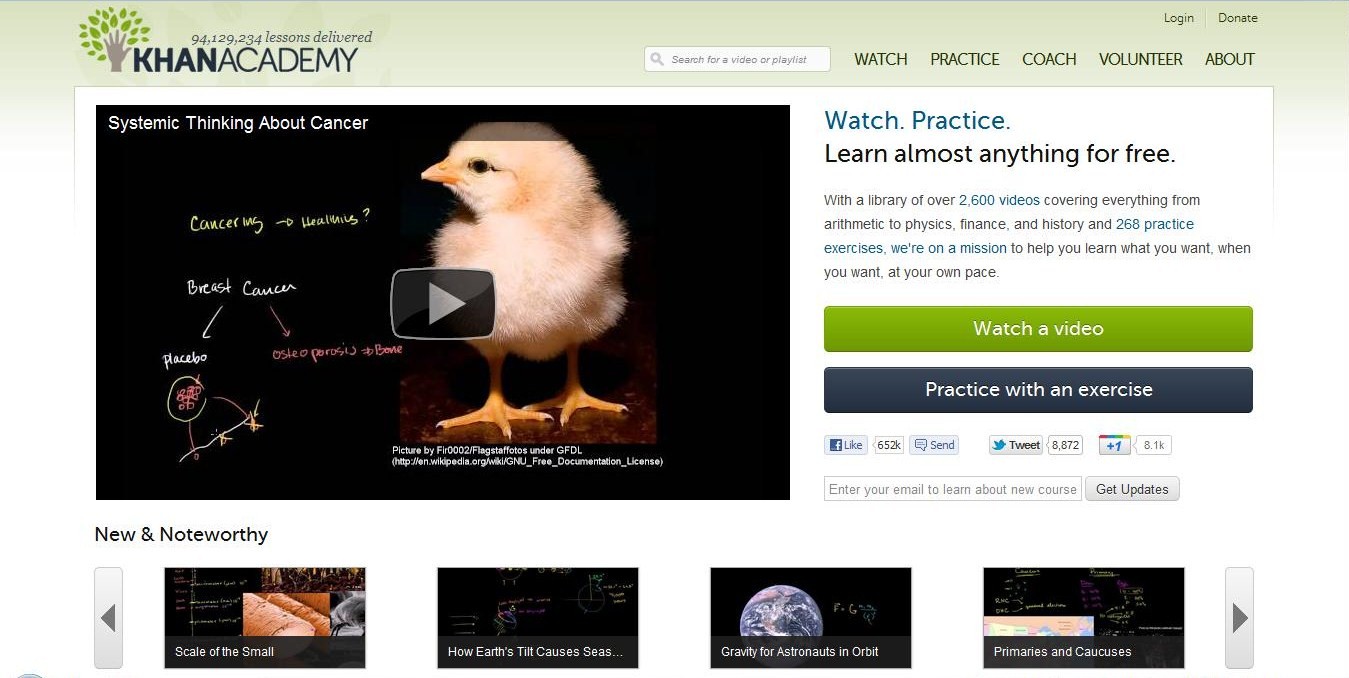After earning degrees from MIT and Harvard, Mr. Salmon Khan began tutoring his cousins by using Yahoo!’s Doodle notepad. As his popularity grew, Mr. Khan decided to work full-time on distributing his tutoring videos through YouTube and founded the Khan Academy. When Mr. Khan launched his business on September 2006, everyone except Mr. Khan himself was skeptical, not sure whether the business would be successful. However, the Khan Academy is now one of the most popular internet blogs dedicated for education.
“Watch. Practice. Learn almost anything for free.” The Khan Academy, a non-profit website, offers tons of free lecturing videos to students who are eager to learn something. About 2,600 videos posted on the Khan Academy website are mostly about K-12 math and science. Indeed, they are extremely simple and easy to follow. For example, in the first lecture of Algebra topic “Simple Equations,” students can see a black chalkboard, which is, in fact, a little computer screen. Writing on the screen with the computer arrow, Mr. Khan helps students to actively participate and understand the topics that they are studying. The voice of Mr. Khan may be somewhat monotonic, yet it is just powerful enough to catch the students’ attention. Placed below the video are the questions-and-answers section where students are free to ask, answer, and discuss any questions.
Far from being a typical educational website, the Khan Academy strives to establish a cyber school, which gives the users unprecedented visibility. Students may try various practice questions after successfully mastering one video. Their performances on these practice problems are collected so that the students can easily see their exercise progresses and which part they have to focus more on. Moreover, either students or teachers can add each other. The teachers, called “coaches,” can manage their students, check their work progresses, see classroom data, or post meaningful comments. In real schools, students earn academic awards from their teachers, but in this website they earn badges that are worth bragging about. As they watch the videos and work on the problems, the students can earn “energy points” and accumulate several distinctive badges such as Master of Algebra.
These days, several schools are using the Khan Academy for their educational purposes. However, several critics point out that this website is trying to make teachers outdated and ineffective. “That’s not what we’re about,” responded Mr. Khan when accused with such criticism. The Khan Academy, with its $2 million financial backing from the Gates Foundation and Google, is trying to expand its “free-business” by making the videos to be translated in many languages and adding new subject areas including humanities. You can visit the Khan Academy at www.khanacademy.org.


